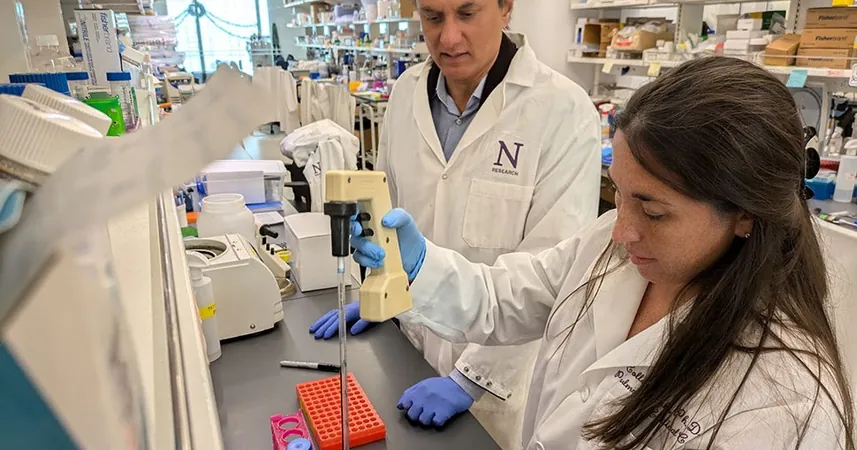
Unveiling the Mystery of Metformin: How This 'Wonder Drug' Powers Sugar Control!
2024-12-18
Author: William
CHICAGO — For over 60 years, metformin has been hailed as a cornerstone treatment for Type 2 diabetes, and it continues to be a lifeline for millions around the globe. But the science behind how this 'wonder drug' works—particularly in lowering blood sugar—has remained elusive until now. Recent groundbreaking research from Northwestern Medicine has shed light on metformin's unique mechanism, supporting its reputation not just as a diabetes medication, but also as a potential fighter against cancer and inflammation.
The study, published in Science Advances, reveals that metformin operates by specifically interfering with mitochondria, the powerhouse of cells. More precisely, it disrupts a critical component of the mitochondrial energy-making system known as complex I. By doing so, metformin effectively reduces glucose levels in the blood while preserving the health of normal cells.
“The findings of this research dramatically deepen our understanding of how metformin functions,” said Navdeep Chandel, a prominent figure in this study. The team employed genetically engineered mice to explore the impact of metformin on blood sugar levels by manipulating mitochondrial complex I. Their results were illuminating: mice given metformin saw reduced glucose levels, while those engineered to resist this inhibition showed a dampened response.
But what sets metformin apart not only lies in its mechanism. This drug, derived from compounds found in the French lilac plant, is notably affordable, making it a go-to option for many Type 2 diabetes patients. Often, it is combined with other medications, including popular newer treatments like semaglutides (Ozempic and Mounjaro), further enhancing its therapeutic potential.
The implications of this study extend beyond diabetes. Chandel noted that metformin's ability to decrease inflammation and its potential anti-cancer effects might all be linked to its action on mitochondrial complex I. “This unifying mechanism could help explain how metformin enhances overall health and longevity,” he stated, hinting at future explorations that could further validate these findings.
With ongoing debates about the precise actions of metformin continuing in the scientific community, this latest research provides a solid foundation for understanding its dual role in managing diabetes and possibly influencing other critical health realms. As enthusiasm grows, one question looms large: Could metformin be the key to unlocking new anti-cancer therapies? Only time—and further research—will tell!
Stay tuned as we delve deeper into the fascinating world of diabetes research and its horizons that extend far beyond blood sugar control!









 Brasil (PT)
Brasil (PT)
 Canada (EN)
Canada (EN)
 Chile (ES)
Chile (ES)
 España (ES)
España (ES)
 France (FR)
France (FR)
 Hong Kong (EN)
Hong Kong (EN)
 Italia (IT)
Italia (IT)
 日本 (JA)
日本 (JA)
 Magyarország (HU)
Magyarország (HU)
 Norge (NO)
Norge (NO)
 Polska (PL)
Polska (PL)
 Schweiz (DE)
Schweiz (DE)
 Singapore (EN)
Singapore (EN)
 Sverige (SV)
Sverige (SV)
 Suomi (FI)
Suomi (FI)
 Türkiye (TR)
Türkiye (TR)